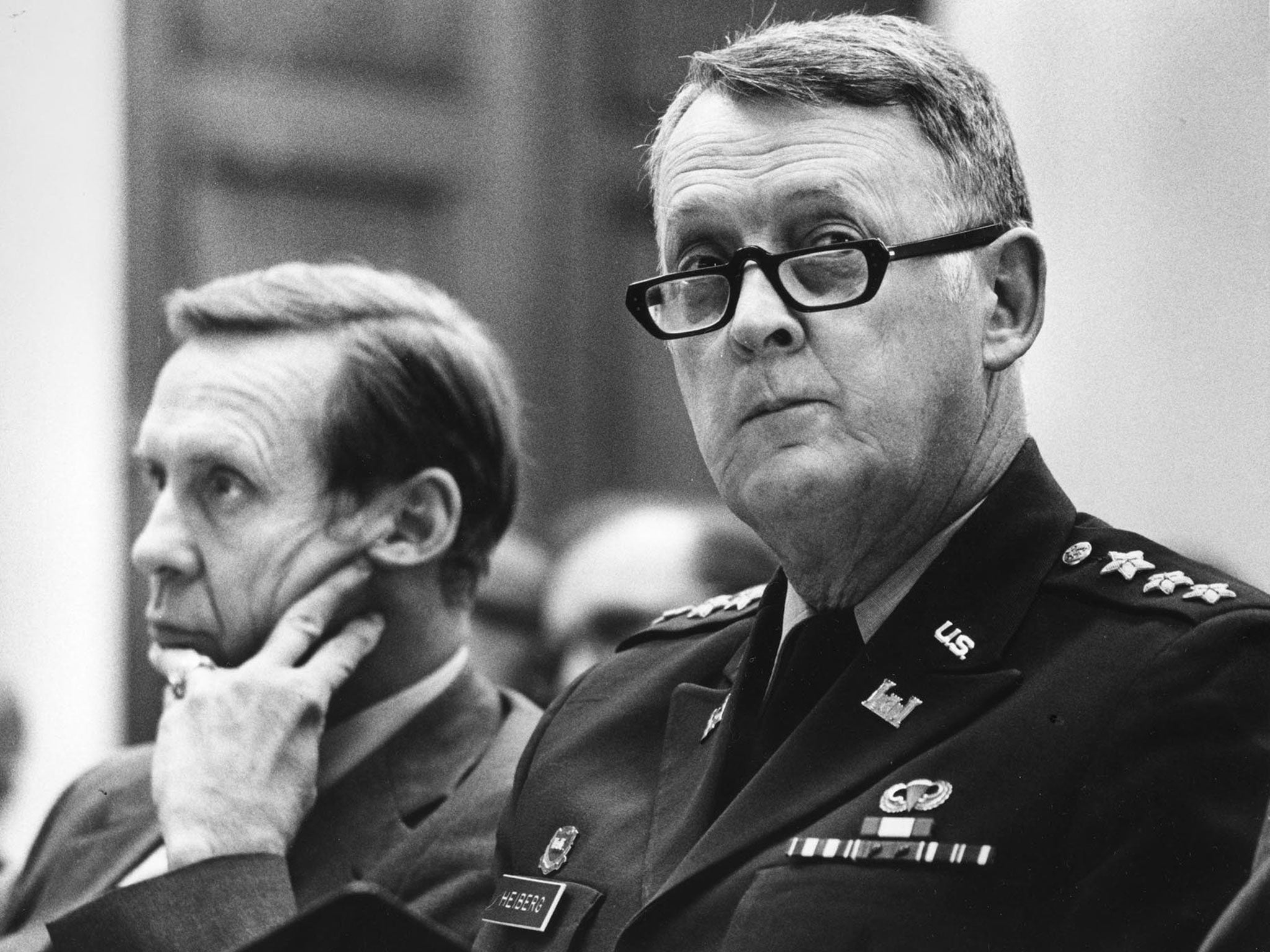Elvin Heiberg: Lieutenant-general who expressed public regret that he didn’t fight harder for New Orleans floodgates

Your support helps us to tell the story
From reproductive rights to climate change to Big Tech, The Independent is on the ground when the story is developing. Whether it's investigating the financials of Elon Musk's pro-Trump PAC or producing our latest documentary, 'The A Word', which shines a light on the American women fighting for reproductive rights, we know how important it is to parse out the facts from the messaging.
At such a critical moment in US history, we need reporters on the ground. Your donation allows us to keep sending journalists to speak to both sides of the story.
The Independent is trusted by Americans across the entire political spectrum. And unlike many other quality news outlets, we choose not to lock Americans out of our reporting and analysis with paywalls. We believe quality journalism should be available to everyone, paid for by those who can afford it.
Your support makes all the difference.Elvin Heiberg was a former chief of the Army Corps of Engineers who was awarded the Silver Star for his service in Vietnam as commander of a combat engineer battalion. But he became best known for his public declaration that he failed to fight hard enough for the installation of floodgates that might have spared New Orleans from the flooding devastation of Hurricane Katrina in 2005.
After returning from Vietnam, Heiberg headed the Army Corps of Engineers district that includes New Orleans. He was chief of the Corps of Engineers, which oversees hurricane protection, from 1984-88. The Corps devised a plan to install giant floodgates at the eastern end of Lake Pontchartrain to block storm-driven water surges from the Gulf of Mexico. During Katrina, gulf water surged into the lake and from there into New Orleans’ 17th Street Canal. When the canal wall collapsed, the water poured into the city with catastrophic results.
Environmentalists opposed the flood-surge gates idea, and in 1977 a judge ruled that the Corps had not fully evaluated the environmental impact. The corps instead built flood walls and raised levees, an approach that was still incomplete when Hurricane Katrina struck. In 2006 Heiberg recalled the saga. “I said ‘OK, we give up.’ As I have told a number of people, I think that’s probably the biggest mistake I made when I was head of the Corps of Engineers. I should have kept fighting. I think Katrina proved that.” µ BART BARNES
Elvin Ragnvald Heiberg III, soldier: born Hawaii 2 March 1932; married Kathryn Schrimpf (two daughters, two sons); died Arlington, Virginia 27 September 2013.
© The Washington Post
Join our commenting forum
Join thought-provoking conversations, follow other Independent readers and see their replies
Comments